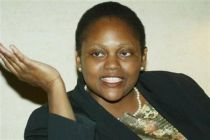U.S. wants earlier transfer of force in Darfur
July 25, 2007 (WASHINGTON) — The United States wants a combined U.N.-African Union force to function in Darfur from Oct. 1, three months earlier than proposed in a draft U.N. resolution, a senior U.S. official said Wednesday.
 “People are dying, there is no reason to wait until December 31st,” U.S. Assistant Secretary of State for African Affairs Jendayi Fraser said in an interview with Reuters.
“People are dying, there is no reason to wait until December 31st,” U.S. Assistant Secretary of State for African Affairs Jendayi Fraser said in an interview with Reuters.
A revised U.N. Security Council resolution drawn up by France and Britain and circulated this week sets a target date of no later than Dec. 31 to transfer authority from the African Union to a combined AU-UN force.
The aim of the hybrid force is to quell violence in Sudan’s western region, where more than 2.1 million people have been driven from their homes and an estimated 200,000 have died.
Fraser said about 7,000 African troops in Darfur should transfer to the joint force by Oct 1 rather than the target date in the draft resolution, which may be voted on in the coming days.
“They are fully qualified to be the first element of the hybrid force,” Fraser said. “We have the forces on the ground, why don’t we get started with this?”
She said African capabilities were consistently underestimated and the United Nations did not need to wait for Asian troops to sign on before the handover began.
“Essentially they are saying these African forces are not good enough and that is a huge problem. It is just not correct. I don’t know where that prejudice is coming from. These are U.N. qualified troops.”
The Dec. 31 date was chosen by the resolution’s sponsors after talks with U.N. peacekeeping officials and African Union military commanders and gives a timeline for management structures to be established.
The plan, which Sudan resisted for months, authorizes up to 26,000 troops and police in Darfur, with the bulk of the infantry soldiers coming from Africa but others from Asian nations such as Indonesia and Pakistan.
Fraser said the AU forces currently in Darfur were not being paid and were poorly equipped, problems that could quickly be rectified once the U.N. was on board.
SITTING DUCKS
“They are basically sitting ducks in Darfur and I think it is irresponsible not to bring them in early as the first phase of the hybrid.”
She said the U.N. could provide planning, support and assistance and basic equipment such as satellite phones that have so far been lacking.
The United States would be the primary financier of the forces. Beyond that, the United States would work with the U.N. to pick up contracts providing housing for forces, she said.
Fraser denied any suggestion that the rush was driven by the U.S. domestic political timetable. U.S. elections take place in 2008 and pressure is mounting on the White House from Evangelicals and other key Republican supporters for whom the violence in Darfur is a major issue.
Fraser said Sudan’s government was holding up about $34 million in equipment from reaching AU forces and the government was deeply divided, another reason to push fash on transferring authority.
“It is necessary to move rapidly before the dynamic changes in Sudan,” she said. (Additional reporting by Evelyn Leopold at the United Nations)
(Reuters)
